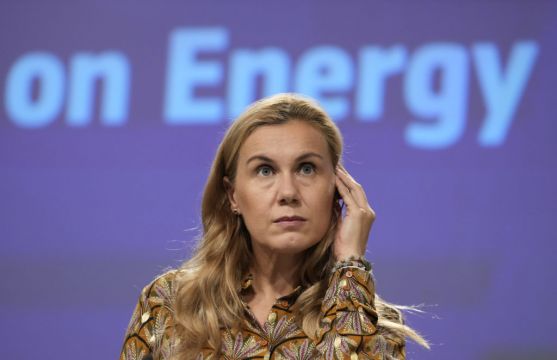The European Union’s executive branch has advised the 27 member countries to adopt tax cuts, state aid and other measures to help households and businesses weather the impact of high energy prices.
After months of economic instability linked to the coronavirus pandemic, the European Commission wants a rapid and joint response to mitigate the effects of the price hikes, especially for people living in poverty or on low incomes.
“Rising global energy prices are a serious concern for the EU. As we emerge from the pandemic and begin our economic recovery, it is important to protect vulnerable consumers and support European companies,” EU Energy Commissioner Kadri Simson said.

To help consumers, the European Commission proposed that countries offer income support through vouchers, bill payment deferrals or partial bill payments, which can be supported with revenue from the EU’s emissions trading system.
Its other recommendations for national governments are introducing safeguards to avoid service disconnections, cuts in taxation rates and aid for certain companies or industries.
The commission said it also wants to see longer-term measures to prepare the EU for such possible price shocks, including accelerating investment in renewable energy sources and developing energy storage capacity.
EU officials have said the bloc as a whole currently has a storage capacity for more than 20% of its annual gas use but not all member countries have storage facilities.
The commission said it would also consider developing a joint procurement programme for gas reserves, an idea recently proposed by Spain. The EU depends heavily on imported gas, mainly from Russia.
Ms Simson said that participation in the joint purchasing programme would be voluntary “and the scheme should respect competition rules”.
EU officials said 20 member countries have already taken or are planning to take action to alleviate the added financial strain.

A labour organisation’s study released last month said that almost 3 million EU workers lack enough money to turn on the heating at home.
Spain, which along with Italy and Portugal has experienced a steep rise in energy costs, has already slashed energy taxes, scrapped a 7% tax on power generation, cut an energy tariff on consumers from 5.1% to 0.5% and reduced the sales tax on household energy from 21% to 10%.
EU experts expect the price spike to be temporary but to last throughout the winter, a contrast from the exceptionally low prices seen last year.
The main reason behind the sharp spike is an increased global demand for energy, and in particular gas. Earlier this month, natural gas traded almost five times higher than at the start of this year.
Sharply higher oil and gas prices last month pushed annual inflation in the 19 countries that use the euro to its highest level in more than a decade.







